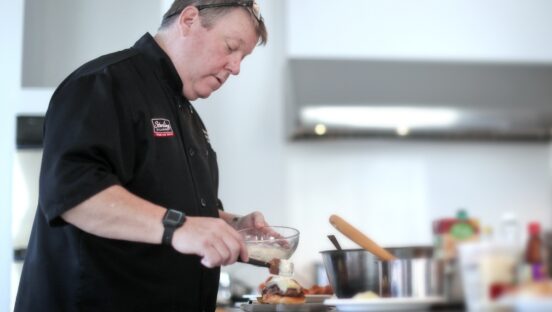In a time when menu trends are changing more rapidly than ever, there is one stalwart which has proven persistently popular with diners: burgers continue to evolve with customer tastes and provide chefs with a versatile outlet for culinary experimentation. Furthermore, the addition of premium ingredients on burgers is a driver for many restaurants’ bottom line.
“People love burgers,” says Scott Rosenberg, director of marketing and customer service for Unibake. “They’re a great way for chefs to experiment with new flavor combinations in a very guest-friendly format.”
Recent research from Mintel shows that when it comes to burgers, a customer’s primary concern is—overwhelmingly—flavor. To achieve that flavor, more than 80 percent of consumers say they will pay more for burgers made with premium ingredients, which chefs can emphasize or upsell with menu callouts.
“Consumers aren’t looking for gold-dusted burgers,” Rosenberg says. “You’ll get a better response from guests if you make smaller upgrades that satisfy demands for a unique experience—adding specialty buns or cheese, for example—without raising prices too high.”
Although increased competition from innovative fast casual restaurants has created a certain value perception for burgers, there are several ways that chefs can continue to add better menu items in order to meet customer demands, while at the same time ensuring full service restaurants don’t get priced out of the burger market.
“You can charge more for add-ons,” Rosenberg says. “An egg, for example, costs around 25 cents to purchase, but you can charge at least $1 more if there is a fried egg on top of a burger. As long as you account for all of the ingredients on the burger, or give customers the option to select ala carte add-ons, you should be able to make a profit.”
Because the landscape of on-premise dining has changed, one of the challenges that chefs have with menuing burgers is making sure they deliver a premium burger experience for both in-house diners and take-out guests alike.
“The average burger bun quickly becomes soggy and will fall apart,” Rosenberg says. “That problem is exacerbated with delivery experiences, where the time from kitchen to table is much longer.”
The Euro-Bake brand offers a line of hearth oven-baked buns, such as the new Brioche Bistro Bun, which provides a better base for burgers—especially those loaded with premium toppings.
“A hearth oven provides a better environment for the development of the crust,” Rosenberg says. “The end result is a burger bun that is still soft, but can also absorb burger juices and sauces without falling apart.”
In addition, Rosenberg says the Euro-Bake buns are fully baked and stored frozen, which helps chefs to only use what they need. By investing in premium burger buns and other ingredients, operators can increase profits, reduce waste, and improve customer satisfaction overall.













